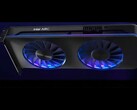An increasing number of reports concerning instability on Intel’s Raptor Lake and Raptor Lake Refresh desktop processors has been recorded in the past months. From the data collected by Tom’s Hardware and Techspot, it looks like higher-end models such as the i7-13700K / i7-14700K and i9-13900K / i9-14900K are more prone to crash in specific scenarios that include some games based on Epic’s Unreal Engine or synthetic benchmarks like CineBench, Prime95 and Handbrake.
Eearlier incidents dating from August 2023 come from game developer Gearbox that noted some systems equipped with 13th gen Core CPUs may crash to desktop while running Remnant 2 with an “out of video memory” error. Meanwhile, Fatshark, developer of Vermintide 2 and Warhammer 40,000: Darktide, pointed out that i7-13700K and i9-13900K owners could experience similar crashes. Tom’s Hardware adds that this issue also occurs in other resource intensive AAA games like Alan Wake 2, Hogwarts Legacy, Horizon Zero Dawn, Immortals of Aveum, Metro Exodus Enhanced Edition, and The Last of Us - Part 1. Additionally, games that use the RAD Bink video codec and the Oodle data compression tech are also said to be affected by such crashes.
Despite the VRAM error that would make one believe the GPU is at fault, the actual culprit here appears to be the motherboard, which is either applying a mild overclock or is overprovisioning the CPU with higher voltage. As such, Gearbox and Fatshark suggested that users could downclock their CPUs by 200 MHz in order to fix the problem, but this could lead to slight performance loss.
A better solution is suggested by Tom’s Hardware and RAD. The high-end motherboards equipped with an i9-13900K / i9-14900K CPU usually come with power and current limit set to 4096 W and 4096 A, respectively. Power limiting the CPU to 275-300 W with amperage limited to 350 A could work without noticeable performance hit, but undervolting the CPU could fix the problem just as well and even boost performance by a few percent while decreasing max temperatures by up to 10-15° C.
Editor's Take
I can confirm that undervolting an i7-13700K can definitely reduce max temperatures and also boost performance. In CineBench 23, my i7-13700K was reaching 100° C, and, after undervolting the processor by 0.110V in the Intel XTU app, the max temp decreased by 6-7° C degrees and performance was improved by a few percent. I remember getting the “out of video memory” error in a UE3 game in August last year, but back then the processor was still running at default voltages. I was not aware of the power issues and blamed the GPU.
Thankfully, that was a singular incident, because after a few weeks I decided to undervolt to -0.110 V since I was concerned about the max temps that could throttle the CPU, and the error never occurred again. Other CPU models may require different undervoltage amounts, so make sure to test things out with the XTU stability benchmarks.
















